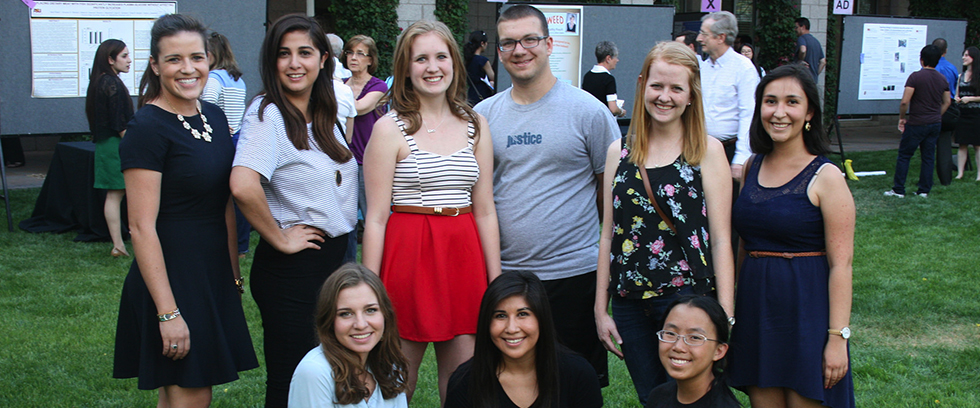
Two Arizona State University programs at Mary Lou Fulton Teachers College have recently won multiple awards for their groundbreaking work impacting sustainability education and community engagement.
These programs take a proactive approach to ensure that future teachers are prepared not only in traditional subjects like reading and math, but also in areas that will help them become more aware and engaged citizens locally and globally.
The Sustainability Science Education project has been awarded ASU’s 2015 President’s Award for Sustainability for the development and success of a new innovative course, SCN 400 Sustainability Science for Teachers. ASU’s Office of Knowledge Enterprise Development also recognized the team with the 2015 Vision Award for their research and content.
University Service-Learning won the Arizona Governor’s Volunteer Service Award, considered the highest honor given for volunteerism in the state of Arizona. It has also been awarded ASU’s 2015 President’s Medal for Social Embeddedness, which recognizes superior accomplishments in identifying a community need or issue and developing mutually-supportive partnerships between ASU and Arizona communities to advance successful solutions.
Filling a need for sustainability science education for future teachers
Why do future teachers need to learn about how iPhones are produced, or examine the life cycle of jeans? Because the future of the planet just might depend on it. Not on the jeans or the iPhones, but on people who understand the implications of the creation and consumption of these products, and who are able to troubleshoot the complex challenges that arise as a result.
Founded in 2011, the Sustainability Science Education Project’s mission focuses on the idea that attaining a sustainable future can be achieved one classroom at a time by informed and dedicated teachers. To carry out this mission, Lee Hartwell and his development and research team at ASU’s Biodesign Institute produced a unique course, Sustainability Science for Teachers (SCN 400), one of the first programs in the United States to clearly and systematically address sustainability topics, problems, solutions, and divergent thinking within a teacher preparation program.
“Preservice teacher education represents a promising means to achieving large-scale social transformation,” said Lee Hartwell, Distinguished Sustainability Scientist and 2001 Nobel laureate.
The new course utilizes a hybrid of online and face-to-face classroom instruction, digital storytelling, and hands-on assignments to help students not only learn the concepts but also actively take part in sustainability practices in their own lives. As a result, preservice teachers come away with the skills and knowledge necessary to teach kindergarten through 8th grade students about the challenges of improving human health and well-being while reducing human exploitation of natural resources.
“We’re very conscious of the fact that teachers have the power to educate the next generation of scientifically literate, globally minded citizens. In order for them to do that, however, the teachers themselves require a more in-depth study of sustainability issues,” said Leanna Archambault, associate professor in Teachers College. “When we analyzed student learning, we saw significant growth in the depth and breadth of awareness of the many issues involved.”
The goals of the course were to engage preservice teachers as citizens so they could experience first-hand how individual efforts can make an impact, and provide them with ideas and tools to employ these concepts in their future classrooms.
“When people hear the term ‘sustainability’ they tend to think of things like recycling and reducing carbon emissions. But there’s actually so much more to it than that. Complex problems such as population growth, poverty, access to clean water, nutritious food, and energy – these challenging issues demand creative, adaptive learners who can develop and implement novel solutions,” said Annie Warren, program director and ASU doctoral student in the Consortium for Science, Policy, and Outcomes.
Sustainability Science for Teachers (SCN 400), is a program requirement for all elementary teacher candidates at ASU, and is now wrapping up its fourth academic year.
(Source)
